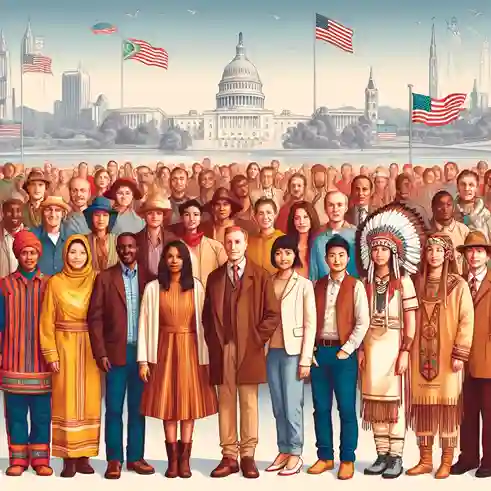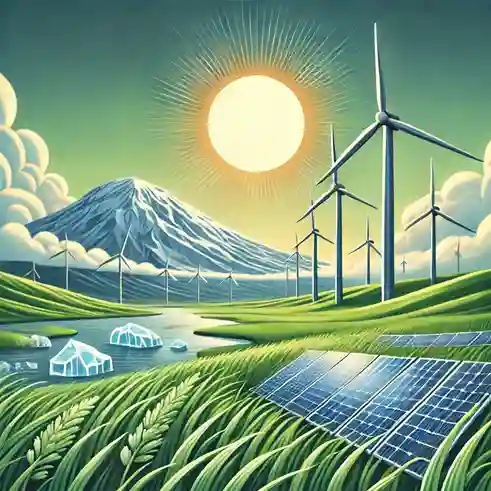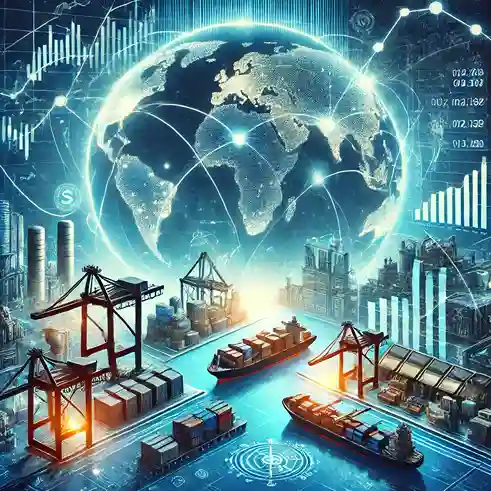The future of America is a subject of constant debate and reflection among experts, policymakers, and citizens alike. As a nation with a dynamic and diverse population, America faces a unique set of challenges and opportunities that will determine its path in the coming decades. The rapid advancements in technology, shifting political landscapes, and global economic changes will have a profound impact on the direction the country takes in the 21st century.
In this article, we will explore the major trends that will shape the future of America, including technological innovations, demographic shifts, economic transformations, and social changes. While some of these trends are already visible today, others are still emerging and will require careful navigation to ensure a prosperous and sustainable future. The ability of the country to adapt to these changes will be key to its success in the coming years.
The future of America is not just about the political or economic landscape; it also includes the social fabric of the nation. As the world becomes more interconnected, America’s role on the global stage will evolve, influencing how it interacts with other countries and addresses issues like climate change, international security, and human rights. In this article, we will look at the multifaceted aspects of America’s future and how these factors will work together to define the country’s trajectory.
Technological Advancements and the Future of Innovation
Technological innovation has always been a driving force behind America’s success, and it will continue to play a pivotal role in the nation’s future. From artificial intelligence and machine learning to quantum computing and biotechnology, the next few decades are expected to witness breakthroughs that will change every aspect of life. These technologies have the potential to revolutionize industries, improve healthcare, and create new opportunities for education and employment.
However, these advancements also bring challenges. Issues related to data privacy, cybersecurity, and the ethical implications of artificial intelligence are becoming increasingly important. To stay ahead, the U.S. must invest in both the development of new technologies and the regulatory frameworks that ensure these innovations are used responsibly and equitably. The role of government, private companies, and educational institutions in fostering innovation will be crucial in determining how successfully America navigates this technological revolution.
In addition, automation and artificial intelligence are expected to disrupt the job market, with many traditional roles being replaced by machines. This presents an opportunity to rethink education and workforce development to prepare future generations for new types of employment. America’s ability to harness technology for the benefit of all its citizens will determine whether the country can maintain its global leadership in the years ahead.
Demographic Shifts and Their Impact on Society

One of the most significant factors influencing the future of America is its changing demographics. The U.S. is experiencing a shift in its population makeup, with an increasing number of immigrants, a growing elderly population, and changes in family structures. By 2050, it is expected that the U.S. will become a “majority-minority” nation, with no single racial or ethnic group comprising the majority of the population.
This demographic transformation presents both opportunities and challenges. On the one hand, the growing diversity of the U.S. can bring new perspectives, ideas, and talents to the workforce, making the nation more competitive globally. On the other hand, demographic shifts can exacerbate existing inequalities if policies do not adapt to ensure that all groups have equal access to opportunities.
The aging population, particularly the Baby Boomer generation, also presents challenges for healthcare and social services. With a larger portion of the population entering retirement, there will be increased demand for healthcare services, pension programs, and elderly care. Addressing these needs while maintaining economic growth will require innovative policy solutions and investments in infrastructure that can accommodate the changing needs of society.
Economic Evolution and Global Positioning
The future of America’s economy will be shaped by several factors, including globalization, technological advancements, and internal policy decisions. While the U.S. remains one of the largest economies in the world, it faces rising competition from emerging markets, particularly China and India. This competition will push America to rethink its economic policies and global positioning in the coming decades.
Global trade and supply chains will continue to evolve as new technologies and geopolitical tensions alter the landscape of international business. The U.S. will need to navigate these changes carefully, balancing the need for economic growth with the desire to protect domestic industries and workers. The rise of automation, for example, may shift manufacturing back to the U.S., but it also raises concerns about job displacement and wage inequality.
At the same time, the economic future of America will be influenced by internal challenges, such as income inequality and rising national debt. Finding ways to address these issues while maintaining a strong and innovative economy will require a combination of policies that support both entrepreneurship and social welfare. Ensuring that economic growth benefits all Americans will be key to sustaining long-term prosperity.
Environmental Sustainability and the Future of America

Climate change is one of the most pressing issues that America will need to address in the coming years. As extreme weather events become more frequent and the effects of global warming intensify, the U.S. will face increasing pressure to adopt sustainable practices and reduce its carbon footprint. The future of America will depend on how effectively the country can transition to renewable energy sources, develop green technologies, and mitigate the impact of climate change on both the environment and the economy.
The U.S. government has a critical role to play in implementing policies that incentivize the use of renewable energy, promote energy efficiency, and protect natural resources. Public and private sector collaboration will be necessary to drive the innovation needed to address climate change and create a sustainable future. Additionally, climate-related migration and changes to agricultural practices may require new approaches to urban planning and food security.
Environmental sustainability will also be tied to economic growth, as the green economy expands and new industries focused on clean energy and sustainability emerge. The future of America’s economy will increasingly depend on its ability to leverage environmental stewardship as a driver of innovation, creating new jobs and opportunities while addressing one of the most critical challenges of the 21st century.
Social Change and the Evolution of American Identity
As the nation progresses into the future, the concept of what it means to be “American” will continue to evolve. America’s identity has always been shaped by its diverse culture, values, and ideals, but as new generations come to the forefront, the country will face new questions about inclusivity, justice, and equality. Social movements addressing issues like racial inequality, LGBTQ+ rights, and women’s empowerment will continue to shape public discourse and influence policy decisions.
The future of America will depend on how well the nation addresses these issues of social justice and works to create a more inclusive society. As the U.S. becomes more diverse, the need for policies that promote equity and opportunity for all citizens will become even more urgent. The ability to bring people together despite their differences will be critical in maintaining social cohesion and political stability.
The role of education, media, and community organizations in fostering understanding and tolerance will also be crucial. As new technologies alter the way people communicate and interact, the ability to build a shared sense of national identity will face new challenges. Navigating this cultural shift will be an important part of ensuring that the future of America remains bright and inclusive for all.
Conclusion
The future of America is poised to be shaped by an array of complex forces, from technological innovation and demographic shifts to economic evolution and environmental sustainability. How America responds to these challenges and opportunities will determine its place in the world and the quality of life for its citizens in the years to come. By embracing change and fostering innovation, the U.S. can continue to lead the world into a new era of prosperity, equality, and sustainability.

